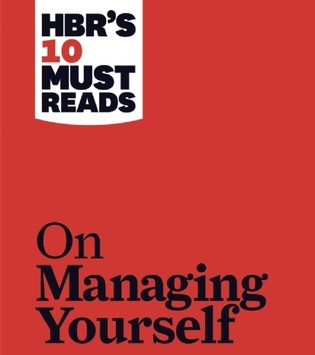Authors: Clayton M. Christensen, Peter F. Drucker, William Oncken Jr., Donald L. Wass, Diane L. Coutu, Tony Schwartz, Catherine McCarthy, Edward M. Hallowell, Stewart D. Friedman, Sumantra Ghoshal, Heike Bruch, Robert E. Quinn, Robert S. Kaplan, Daniel Golean, Richard Boyatzis and Annnie McKee.
Publisher: Harvard Business Review Press – 198 pages
Book Review by: Sonu Chandiram
This book is part of a series of books on important as aspects of management published by the Harvard Business Review Press.
You probably have read elsewhere that managing yourself is key to managing others, which in turn is critical to building a successful enterprise with growing revenues and profits, and one that is respected by customers and the general public.
In the first article presented in this book, “How Will You Measure Your Life?” author Clayton M. Christensen writes at the outset that the key to personal happiness is identifying your purpose in life. Finding your purpose provides the framework for what you do in all aspects of your life: your business or profession, your family, your spiritual life, your social circle, and other areas.
Since most of us spend the largest number of hours in our work compared to other areas of our lives, Christensen writes that it is critical that we find happiness in our careers (or whatever it is that you’re preoccupied with, such as if you are essentially a homemaker, for example).
He writes that the “powerful motivator” in our lives is not money, citing Frederick Herzberg, who found that instead it’s “the opportunity to learn, grow in responsibilities, contribute to others and be recognized for achievements.”
He suggests then that you “create a strategy for your life” in order to become fulfilled. That includes developing good relationships with your spouse and family members because they will be the “most enduring source of happiness” for you. He states that in his reunions, he sees many of his classmates are unhappy, divorced and alienated from their children. And that need not be so in your own life. How do you avoid these negatives?
Allocating your resources – your personal time, energy and talent – properly will help you create a successful strategy for your life, the author contends. Also, developing a “culture” at home and at work that is conducive to success is essential to finding fulfillment of your basic life purpose.
Other prerequisites to success are: avoiding the “marginal costs” mistake (read the book to gain insight on this), remember the importance of humility, be ethical, and help as many people as you can.
Besides Christensen’s article on helping you find your purpose so that you get the answer to his question of how you will measure your life, there are 10 other articles in this very useful book.
Here is a sampling:
Peter Drucker gives you his ideas on what managing yourself is all about, citing the fact that the greatest men and women in history – high achievers – all learned how to manage themselves first, before making major contributions that helped their fellow beings, such as discoveries, inventions and expanding the frontiers and horizons of knowledge .
Another interesting read is “Management Time: Who’s Got the Monkey?” by William Oncken Jr. and Donald L. Wass. In this article, the authors point out how to avoid taking off from a subordinate’s shoulder his or her monkey (problem) and put it on your own shoulder, as if you did not have enough responsibilities of your own.
Diane L. Coutu in her article on “How Resilience Works” discusses how some people, in spite of problems like losing their job, taking a big pay cut, facing foreclosure, grieving a personal tragedy such as losing a loved one, do not sink into permanent depression but bounce back and improve their situations. They are resilient people.
In “Manage Your Energy, Not Your Time,” Tony Schwartz and Catherine McCarthy point out that making employees work longer hours due to the need for better performance (in response to a more competitive landscape, for example) is not the right strategy. Why? Because valuable employees may leave, hurting the company. Instead, taking steps (discussed in the book) to help employees replenish their physical, mental and emotional energies has proven to be very helpful.
All in all, this is an excellent collection of insights by business people and writers on business subjects, particularly on management. Get it and benefit from it.







